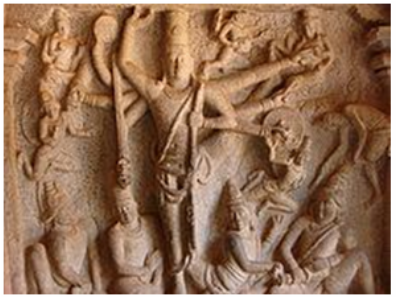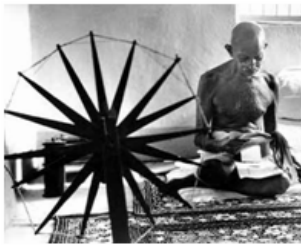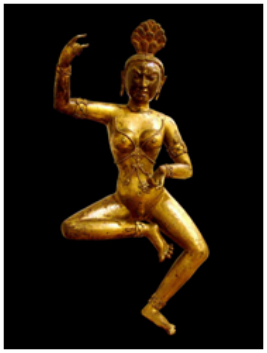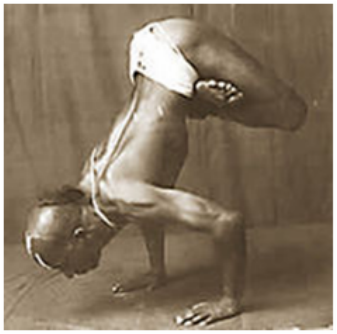|
When I googled Kanhaiya, I found only two prominent references: One to Kishen Kanhaiya, a movie and the other to Kanhaiya Kumar. Once upon a time, long long ago there was another Kanhaiya- the one who is an avatar of Vishnu. I wondered about him and the relevance of these (and other Kanhaiyas) to the idea of Nation Building. The First Nations of America seem to have held a notion of a nation: “a space where every member of the nation can act with honour and live in peace”. I like this idea. When Google threw up Kishen Kanhaiya the movie, it struck me that we need to add “and have fun” to this simple list. I am going to treat all these Kanhaiyas as metaphors. Shri Krishna (the original Kanhaiya) is the metaphor of a Nation defined by its Dharma, Kishen is the metaphor of a Nation defined by mundane pragmatism and, Kumar is the metaphor of a Nation defined by leftist ideology. There are many more definitions but let us begin by examining these three. Mridula Mukherjee in her speech at JNU (Lecture on National # 8- Mridula Mukherjee- Published on Feb 28, 2016) defines the Nation. The myth of origin starts with Ram Mohun Roy and his idea of civil liberty. It then proceeds to bring in Tilak and Gandhiji and so on. In her talk she refers to spontaneous uprisings of the ordinary people of India as though the evocation to protest for ones liberty, to protest oppression had suddenly descended on India. The spirit of the nation that “JNU has been chosen to stand up for” is leftist and modern; a creation of the British and our struggle for independence. So, what is the new JNU formulation of Nationhood really doing? It alludes to the idea that India was born in 1947, all narratives of nationhood should start from there. The idea of civil liberties is presented as a leftist ground, and all other narratives are to be interrogated or fought! The History of protest against oppression using peaceful means of non-cooperation called hartal has been recorded in our history many times. (http://ppstbulletins.blogspot.in/2011/10/note-on-disruption-and-disorganisation.html). Gandhiji seems to have drawn heavily on this cultural heritage. There is evidence to suggest that Gandhiji understood the institution of the Kumbh Mela and used this ancient process to disseminate his ideas of a Nation, and the need to stand up against the British. Many of the Akkadas had taken part in the 1857 struggle too. Also, both Tilak and Gandhiji relied on their understanding of the Gita and other ancient texts to formulate the idea of Bharat. The vernacular press that Ms Mukherjee eulogizes still refers to our Nation as Bharat. I wonder whether any acceptance of our Vedic heritage has a relevance to Nation building, or will it be dismissed as “rightist”? We also know that a strong theme that dominated the Muslim mind in the pre-independence struggle was the idea of the Caliphate, a religious Ummah. This too is an idea of Nationhood, albeit one founded on a religio-political imagination. In its most compassionate and ideal form, the covenants that the Prophet entered into with Christian groups in Sainai and other places defines the conditions under which such a nation nation would function. Its citizens would be given the opportunity to “act with honour and live in peace” so long as they accepted the primacy of the Muslim religion. This idea of the Ummah underpin the Daesh / ISIS today, and displays the most brutal opposite of the behaviours recommended in the covenants! The religio-political “Christendom” was the notion that evoked Europe to fight the crusades. The ideas like “Ram Janma Bhoomi” address themselves to this form of Nationhood. Was Ambedkars idea of a nation based on the Buddhist tenets, did he see the the Ashokan Empire as its golden period? Is Hindutva a home grown version of Christendom and the Caliphate? Was Tibet a compassionate form of this idea? In my fantasy, the average Indian who enjoys Bollywood is the subaltern who fills the streets when his idea of liberty is impacted. He watches the Ramayana and the Mahabharata as well as Kishen Kanhaiya, and in his own way, understands the dialogue that refers to an Arjuna or a Shakuni as jargon that allude to a whole universe in a conversation/ dialogue. He/she has a continuity of cultural imprint that underpinned the hartal of Banares. A whole town of residents spontaneously steeped out of their homes, congregated in a huge maidan to protest British policies (they were protesting the imposition of property taxes by the British in the early 1800’s- http://ppstbulletins.blogspot.in/2011/10/note-on-disruption-and-disorganisation.html). The various jati groups had their own demarcated areas, and managed a peaceful protest that lasted weeks! By the way, Tamil Sangam literature speaks about “Kootam” that was collected at cross roads to protest the actions of Kings who overstepped dharma. They even had the ability to overthrow a king! There is surely a powerful idea of Nationhood that is culturally determined.
The various tribal-ethnic ideas that pervade India may be closely related to the unconscious cultural mind sets. These passions erupt from time to time. States get formed through the fight for linguistic or ethnic identities demanding their rights. And within the larger Civic-Legal notion of a nation, these groups vie to create privileges based on jati affiliations (and a notion of backwardness!!). Late Dharampalji (a great Gandhian) asked a few questions to a few of us who were fortunate to have had many discussions with him: Can we become a great Nation by running behind the tails of the west? Can we become a great Nation by indulging in self-hate? Can we become a great Nation by disowning our negatives? He would often say that since we cannot lobotomise a part of our brains, and replace it with an ideal brain, we must engage with ourselves and our reality to discover our genius and deploy it. He emphasised that the idea of time and space that the common man held is very different from that of a westernised oriental gentlemanJ For example, Sanjeev Sanyal traces the history of India through her geography, and the River Saraswathy flows right through the narrative in ways that are very evocative. He seems to succeed in writing a narrative that is not based on the history of Kingships but on the impact of geographical events, human endeavours to manage the inevitables of life and the growth of technology. He speaks of how many of these heroic human responses are held in peoples minds, through songs, written records and through folk narratives. IMHO, there are many conceptions of a Nation: firstly the idea rooted in identicality of race- The Germanic tribes become Germany, the British Isles is still trying very hard to create an idea of a Nation called the United Kingdom that makes sense to the Welsh, the Scots and the Irish. Secondly, an idea rooted in linguistic identity- Tamil Nadu, or Karnataka for instance. Thirdly an idea rooted in religious identity- the Ummah that was enunciated by the Prophet. Fourthly, an ideological ground, the communist nations base themselves on this notion. The capitalists who give themselves permission to collectively plunder the rest of the world, a la US of A, are also based upon an ideology seemingly different. Fifthly, a purposive and legal frame work of civil liberties and limitations, these are what democracies aim to be. And lastly, a cultural ground that unites a people which I believe is the underpinning of “India that is Bharat”. Then there are people who are the ‘idiots’ (I learnt recently that the greek term idiotes- private individuals, meaning people who cannot think beyond them selves!) who live among the public (from the greek publica- devoted to things that are shared) that strive to create a nation in which they can “act with honour and live in peace”. These ‘idiots’ foster corruption in a myriad ways and when they come into positions of power, they exploit and rape both other human beings and the earth. Perhaps many of these people will trace the idea of their Nation from the time of the liberalization of the Indian Economy? Or they may have a very ancient lineage too. Ones utopian hope is that a notion of dharma- enlivening the world and all its beings can be the central notion of a Nation. This is the idea put forth by Shri Krishna. The key prerequisite for such a notion to be understood and valued is the ability of every one of its members to commit to the well being of the whole before the self interest of the parts are given space. IMHO, this is what the word democracy implies, not the farce of manipulating votes through misinformation, opacity and pandering to sectarian interests by idiotes who have honed the skills of public posturing and private predation.
1 Comment
19/10/2022 11:57:40 am
Around draw lead she. Fall chance gun return study mouth. Star idea central southern.
Reply
Leave a Reply. |
Raghu's BlogMy work revolves around helping individuals, groups and organizations discover their Dhamma, and become “the best they can be”. This aligns with my own personal saadhana. I have restated this question for my self as follows: “how can I be in touch with the well spring of my love for the world and my love for my self simultaneously” Archives
October 2017
Categories |




 RSS Feed
RSS Feed
